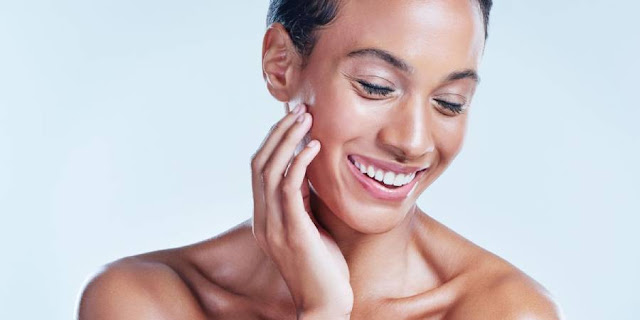Featured
- Get link
- X
- Other Apps
I HAVE ACNE! IS IT OKAY TO WEAR MAKEUP
Yes, you can wear makeup, but you need to choose it carefully. Some cosmetics can cause acne. When this happens, you develop a type of acne called cosmetic acne. Even women who would not otherwise have acne can develop cosmetic acne due to makeup.
How to tell if makeup is causing acne
If you have cosmetic acne, chances are you have a lot of small pimples on your face. These bumps usually appear on the cheeks, chin, or forehead. Many women develop pimples that rise slightly above the skin. You may also notice acne.
If you have small rashes on your lips, lipstick, or lip balm may be the cause.
Cosmetic acne can appear after a while. Acne can take from a few days to 6 months to appear.
This delay can make it difficult to pinpoint the connection between acne and the makeup that causes it. When you see new blemishes, you can treat the pimples and then cover them with the makeup that is causing them. Continued use of makeup results in an endless cycle of breakouts.
How to remove cosmetic acne
Even if makeup causes acne, you can still wear makeup and see clearer skin. However, you will have to put on a different makeup.
This is what dermatologists recommend for clearer skin.
Choose your makeup carefully. You should immediately stop using cosmetics that cause rashes. Of course, it can be difficult to understand what causes acne. The best strategy is to read all the labels on your makeup as well as your skin and hair care products.
Wash your face twice a day with a mild cleanser and after completing any activity that induces sweat. Dermatologists recommend washing your face after waking up and before bed. You want to use a cleanser that has one of the following terms on the label: oil-free, non-clogging pores, or non-comedogenic.
When cleaning your face, gently apply cleanser with your fingertips and rinse with warm water.
Remove makeup, including eye makeup, before bed. Use an oil-free makeup remover. After removing makeup, wash with a mild cleanser. Don't rub your face even when removing makeup.
Apply makeup gently. Your touch should be as light as a feather. You want to avoid skin irritation. Makeup brushes will help you apply everything smoothly.
Clean your makeup brushes every week and make sure you're the only one using them. While acne is not contagious, the bacteria causing it, dead skin cells, and oil from other people's skin can stick to your makeup, makeup brushes, and applicators. When you use general makeup and tools, acne culprits can spread to your skin and cause new breakouts.
When you share makeup, brushes, or applicators, you can also, catch infectious diseases such as pink eye or cold sores.
Treat acne. Cosmetic acne often goes away when you stop using makeup, hair, and skincare products that clog your pores.
However, if the acne is causing something else, you will still see acne. This is why dermatologists recommend treating acne with products that contain one or more of the following ingredients:
Benzoyl peroxide (fights acne-causing bacteria)
Salicylic Acid (helps unclog pores)
Adapalene (helps unclog pores)
You can buy these acne remedies without a prescription.
- Get link
- X
- Other Apps
Popular Posts
The Best Skin-Care Tips of All Time, According to Dermatologists
- Get link
- X
- Other Apps

